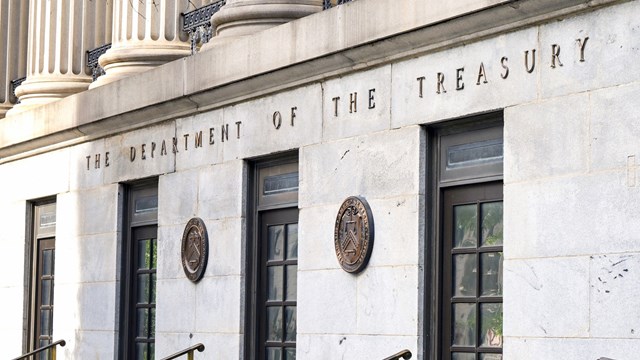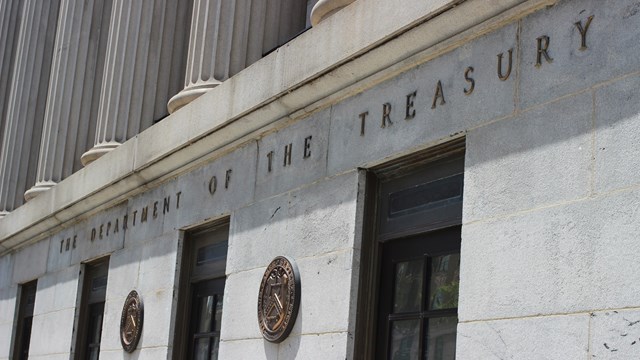On most occasions, HOAs and condo communities in New Jersey are not—as some would say—party central. Indeed, the wild, frenetic energy found in East Coast urban centers like Philadelphia and New York City is lacking. The generally quiet lifestyle—and one without too many unwelcome surprises—is exactly what attracts many homeowners to their associations in the first place.
That said…not every unit owner is a saint. Some communities, certainly, have to confront illegal activity. While most boards and unit owners should be familiar with the consequences and handlings of more pedestrian rule-breaking (i.e., not picking up after dog, not dumping garbage correctly), more serious criminal matters might leave community members unsure of proper reaction standards.
“Generally, associations don't get involved with what people do behind closed doors in their home…so the problem is, when it impacts their neighbor. Once the neighbors get involved, the association has to step in and say, ‘you have to stop this nuisance,’” says Fran McGovern, a principal at McGovern Legal Services in North Brunswick.
Behind Closed Doors
The most common vices can (and do) occur, from time to time, in even the most pristine communities, from drugs-related matters to prostitution and everything in between. For example, in November 2013, professional poker player Vadim Trincher pleaded guilty to running an illegal sports-betting operation out of his 63rd floor Trump Tower condo in Manhattan. This wasn’t a penny-ante operation, either. The New York Postreported that Trincher’s business catered to gamblers in Russia, the Ukraine, and America…all part of a $100 million gambling ring.
Not all residents are involved in such large, news-worthy scandal; some might not realize what they are doing is illegal, even. For instance, Mrs. Jones—a professional hairdresser—might be cutting hair out of her unit to make extra money. Although innocent enough (she is a nice, hard-working neighbor who has hit on hard times), her unit isn’t zoned for business, and customers are coming in and out of her unit at all hours of the day and night, disturbing other tenants. The same situation applies to Mr. Smith—a personal trainer—who has customers coming to his unit day and night for workout sessions.
Playing By the Rules
In some cases, a resident’s illegal activity may be invisible to neighbors, altogether. Mr. Anderson—another example—might have mentioned to a staff member about his financial business but it smells somewhat similar to a Ponzi scheme. In scenarios like this, which don’t put anyone’s safety in immediate jeopardy, it may be wise to first consider whether or not it’s worthwhile to insert yourself into the issue. If so, you may want to first bring the issue to management before going to the police.
“As a specific homeowner, you can start with management and say, ‘Hey, this person's doing this…’ to build up a record, if you will. Management will, typically, in the first go-around, do a cease-and-desist-type letter. Then, it can escalate up,” says John Hague, a partner at the law firm of Greenbaum Rowe Smith & Davis, LLP in Woodbridge.
The moment the understands that something is happening, John Schepisi—founder and president of the law firm of Schepisi & McLaughlin P.A., in Englewood—says to tell the unit owner that they may be in breach of the proprietary lease or bylaws. “Then, tell them it ‘appears’ that their business might be illegal and if it’s not terminated immediately, they will be evicted,” he says. “The board should nip it in the bud…or call the police.”
If the illegal activity is more alarming, however, unit owners or management should get law enforcement involved immediately. “The first action should be to report it to police…drug activity usually goes hand-in-hand with physical violence, right? Also, the association should be informed,” says McGovern.
If there’s a complaint, the board has an obligation to address it. The board should let the resident know there was a complaint against them, but both management and the accused should keep in mind that people make claims that aren’t true, and further investigation by police will determine that. “How far does an association's duty go hasn't been well-defined…we generally suggest that if there is some type of report of a security threat or illegal activity that the board has to act reasonably in response to it,” says McGovern.
Even though it’s not legally needed, to prevent any illegal issues that may arise, the consequences for residents who are participating in illegal activities should already be outlined in the bylaws and proprietary lease. The proprietary lease and bylaws are rules and regulations that give authority to act and uphold the rights of neighboring apartments. Almost every set of bylaws has a provision saying that the owner or shareholder will not violate any governmental laws. If they do, associations will have more firepower to possibly further penalize or evict the offender.
However, before the board starts any process to have a resident evicted from the building, they will actually need proof that the resident is engaged in any wrongdoings. “For example, if you think someone is hosting a prostitution ring out of their unit, you will see that the traffic to the unit will increase, and there will be witnesses, who see women dressing like prostitutes, and a steady flow of ‘Johns,’” says Schepisi. “If a drug problem exists and appears to be valid—say they have a meth lab in the apartment—you will be able to smell them cooking, or see them bringing in unsavory characters.”
When it comes to getting proof, a board should depend on the professionals by first reporting the questionable behavior to the police who can investigate the situation, or by hiring an independent agency. Most proprietary leases can be broken if the board has evidence that the resident has broken the law.
Before reporting something, “I think you should have reasonable confidence that you're really seeing it, as opposed to suspecting it,” says Hague. "Did it happen once? Has it happened a dozen times? Have you overlooked it a couple of times…given the person a benefit of the doubt? That's going to be a person's judgment call.”
If—for instance—you report a domestic disturbance because it sounds like someone is in bodily harm, but it turns out to be two method actors rehearsing a Shakespeare scene, police and neighbors will, most likely, understand the misplaced concern. If you’re going on a witch hunt for something not really causing harm to anyone, however, and “you're doing it in such a way that it really causes a nuisance for somebody, there may be repercussions from that person, just in terms of social conduct. At some point, can that person bring a civil suit for harassment? Sure. If it's repeated and it's baseless, there—potentially—could be liability there,” says Hague.
Stay Safe
Also, just because a board knows illegal activity is taking place doesn’t mean they are under any legal obligation to do anything. “However, if someone is injured and the board—which has a fiduciary responsibility—doesn’t stop what’s going to happen and the board members individually, or collectively, knew it was going to happen, they might be held liable,” says Schepisi.
For management, unit owners, and boards, acting correctly in response to illegal activity can be a hard needle to thread, and requires sound judgment. It’s almost always better to be safe than sorry, but no one wants a neighbor that thinks they’re batman, either. All parties should take the safety of their community first…and, hopefully, the justice system will do what it’s designed to do.
Make sure that the bylaws, declaration and proprietary lease outline what should be done in case of illegal activity, the police are notified and proof is documented. It is much easier to evict residents who are up to no good if you’ve followed these steps to the letter of the law.
Lisa Iannucci is a freelance writer and a frequent contributor to The New Jersey Cooperator. Staff writer Tom Lisi contributed to this article.







Leave a Comment